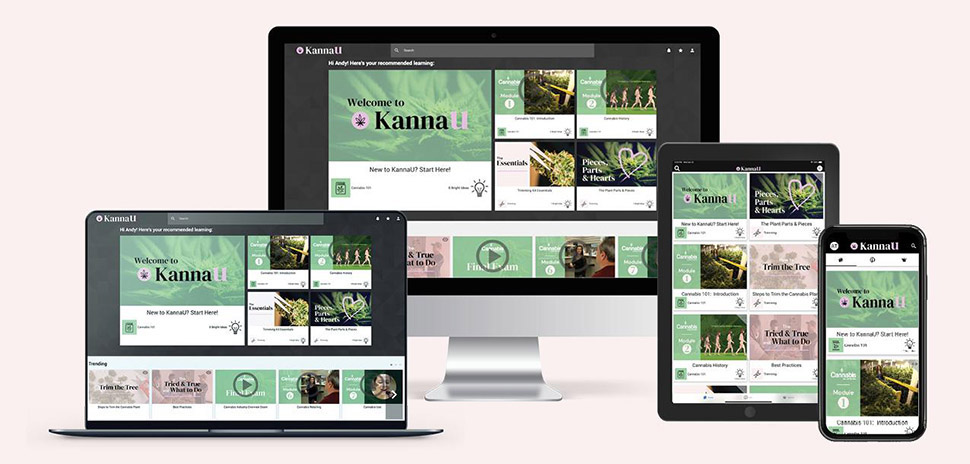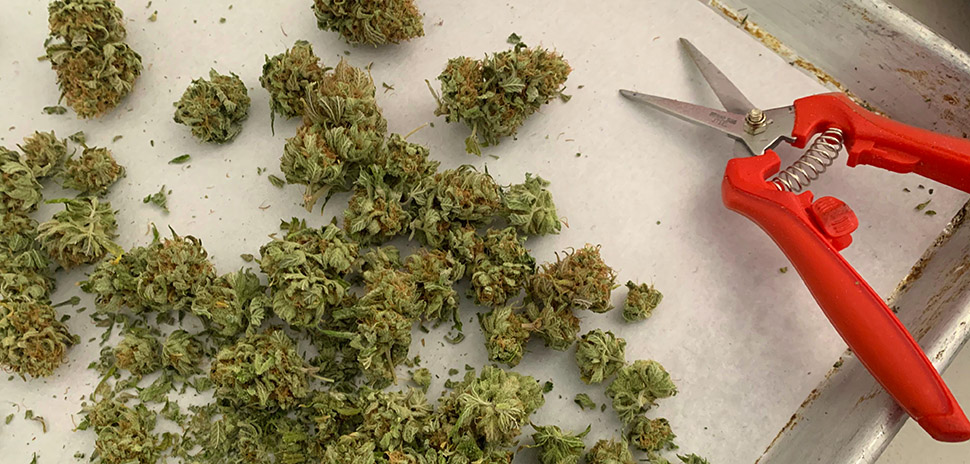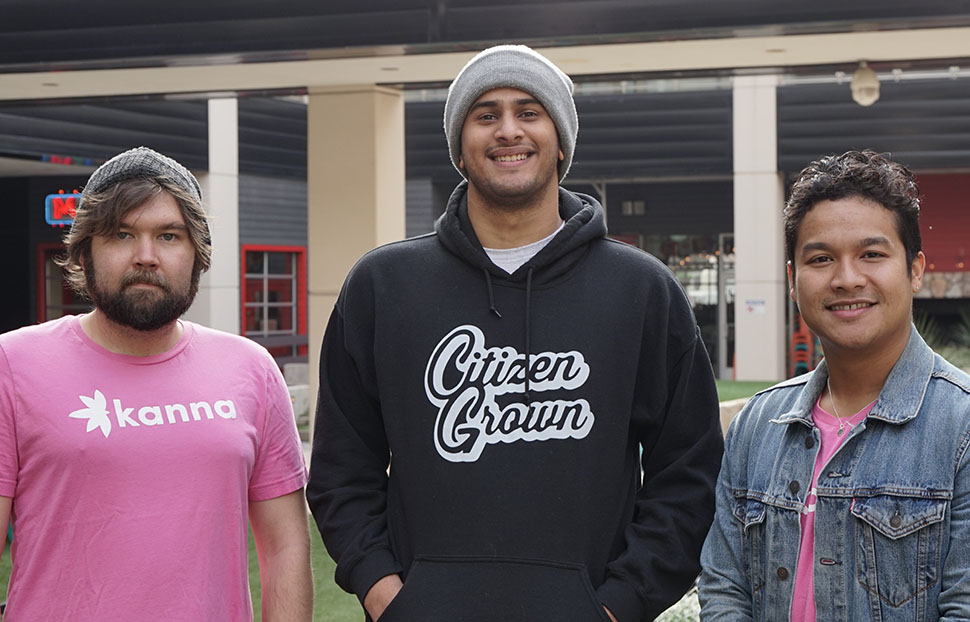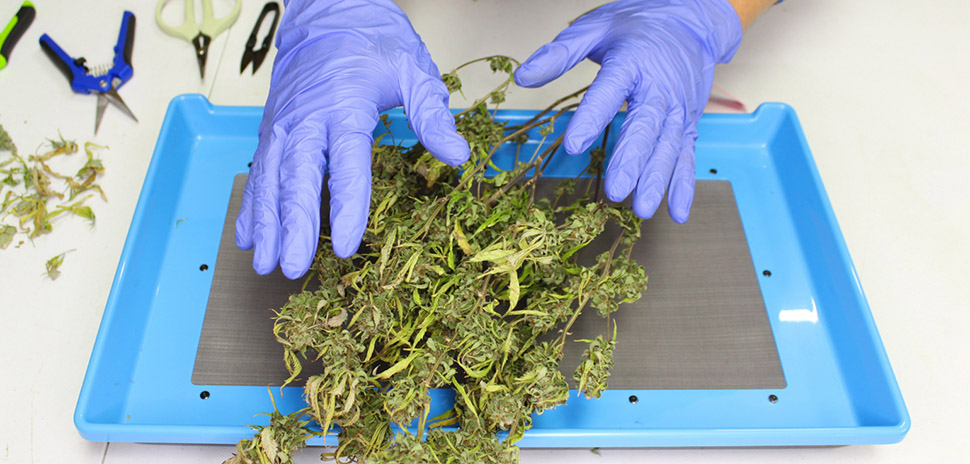Cannabis is still federally illegal in the U.S., but that isn’t stopping one Dallas-founded startup from preparing for the future of the industry.
Kanna was launched last year as a managed marketplace for cannabis gigs that helps legal businesses connect with hourly help. Its business model is based on vetting, training, and certifying cannabis workers for licensed farms and dispensaries, while at the same time providing cannabis business owners with HRIS and payroll software for hiring and managing employee relationships.
Though born just 10 months ago, Kanna has grown quickly—in terms of its farms and as a company.
Dedicated to becoming an “evangelist” for all workers in the industry, the startup recently launched Kanna University, an online trade school that upskills new talent and matches them with jobs in the legal cannabis industry. More than 1,000 applicants are already in the pipeline.
“One of the unique things about this niche is the upward mobility for workers—people can go from working their first gig trimming to being hired on as a trim team lead, cultivation technician, part-time grower and eventually head grower, which earn six figures, in a matter of years, by upskilling themselves while getting real-time compensated work experience,” Kanna COO Ziljian Aguirre told Dallas Innovates.

[Photo: Courtesy Kanna]
That coincides with a $500,000 pre-seed raise to introduce a new enterprise platform helping businesses in the industry to hire, train, and manage their workforce in one place. Investors include Matt Stacy, Jon Oringer (the founder of Shutterstock), Operator Partners, Dallas-based Mockingbird VC, AFO Capital, Erik Treutlein, and Jim Gerencser.
Most of the new funding will go toward Kanna University and its five new courses. But Kanna also plans on continuing to develop its web app for an HR operation system that aims to help farms run their back offices more efficiently.
By the end of this year, the Kanna team aims to equip 2,500 workers with jobs in the legal cannabis industry. It’s a big goal for a fairly new startup, especially one that’s operating out of a city where cannabis hasn’t yet been legalized.
That’s why most of the team decided to make the move north to Oklahoma, where cannabis is legal and they can be hands-on with their paid pilots on 14 farms.
Now, Kanna is full steam ahead. Legal cannabis is one of the fastest-growing job creation machines in the U.S. today, with 340,000 employed in the industry last year alone.
But, as Kanna CPO Vu Francois points out, business owners often see six out of 10 hires turn over in the first two months, costing a high volume of time and money. This can be attributed to the lack of opacity in hiring and how inefficient current solutions are.
That’s not to mention the federal illegality and uncertainty around how federal regulators might view or handle relationships with cannabis companies.

[Photo: Courtesy Kanna]
Since the FDIC (Federal Deposit Insurance Corporation) doesn’t yet support the industry, businesses are largely unbanked and transact in cash. Payroll, insurance, and benefits are largely inaccessible for employees, according to CEO Farhaj Mayan. Plus, workers aren’t currently able to get certified in cannabis cultivation or gain a credible reference check for experience gained.
“We saw an opportunity to quickly build out a supply side of trustworthy, trained workers by democratizing education,” Mayan says. “This enables us to get people from traditional backgrounds qualified to work their first job, while fast-tracking industry veterans and helping business owners hire exceptional talent.”
For Kanna, that talent means everyone, not just the group of folks taking advantage of social equity programs in popular cannabis states. Kanna is proactively finding and training workers who were disenfranchised or from low income communities to help them take advantage of jobs in the cannabis space.
The team hopes to create an ecosystem where underestimated Americans have an opportunity to build equity and wealth from an industry that previously oppressed them. That means being inclusive from the get-go.
“There’s also been a surge in cannabis sales through this economic contraction,” Mayan says. “However, what’s often overlooked is the disenfranchisement of Black and Brown people due to the war on drugs. It’s something that we should be more vocal about as the industry sees unprecedented growth.”
We had a (virtual) chat with Mayan to expand on that “unprecedented growth” he sees for cannabis. We dive into the future of a federally illegal industry, growing during a pandemic, and what big plans Kanna has to stay on the forefront of it all.

Farhaj Mayan (center) is the CEO of Kanna. [Photo: Courtesy Kanna]
How much of your business has to happen in Oklahoma due to legalities?
Medical marijuana is legal in Oklahoma, but a fun fact about the state that most people aren’t aware of is that they have the largest number of licensed cannabis businesses here. It’s more than California and Colorado.
There are 6,000 farm licenses, 2,000 dispensaries, and 1,000 processors. From a unique economic perspective, the per pound rate—what drives the cannabis market—is in around the 2,000-2,800 range here, which is very favorable.
From a competitive landscape, the supply side of labor is so fragmented that we could come in and be a stabilizer to both help farms find trustworthy talent and help people find their first gig.
Can you expand?
We are doubling down in Oklahoma for the next two years, primarily because the market here is so big. I think we can use it as a great place to build up trust, credentials, and the product so it’s robust enough to land and expand into new markets.
Even when we do expand, we’re not looking at mature markets. We’re specifically looking at Missouri, New Mexico, Illinois, Florida, Arkansas—states where the supply side of labor is still fragmented.
We can come in, help them out, and actually build great relationships before we go into mature markets and on other people’s turf.
Have you found it more challenging to find investments and expand in your industry?
Initially, it was for sure. A lot of investors have policies that trickle down from their LPs or they’re pretty apprehensive about investing in cannabis. But our attraction team, our product cadence, and the ability to pivot really quickly and get the viability impressed them.
And as a founder, I’ve learned how to actually tell the story of what we’re building.
It’s that close to 1.5 million people are going to be working in this industry by 2025.
The business owners aren’t the stereotypical vision that many people have. It’s your grandma’s husband’s daughter, a family friend, cousin, or your brother. It’s somebody who has actually owned businesses in the past. It’s people who are venturing into this for the first time to build something, but it’s over-regulated and underserved.
Our thesis is to help build out the future work in the space and build the infrastructure that people can rely on to grow.
What do you wish more people knew about the cannabis industry?
One thing people don’t talk about is that since Oklahoma legalized cannabis, there’s been close to a 40 percent reduction in opioid prescriptions and also addiction problems across the state. We need to very holistically think about the impact that it has on people and the jobs that it can create.
A state like Texas would be a great place to get started very soon.
What stigmas are you working to overcome?
There’s a lack of education. I think being able to paint a picture of who the business owners are and who the workers can create career opportunities and will help spread a lot more positive interactions and hope for this industry. Almost all of our workers are between the ages of 35 to 55 and were blue collar workers.
Historically, when you look at the damage that’s been done, there’s no sort of reparations being paid in terms of equity or wealth. You have to be inclusive from the bottom up to help educate and set up an opportunity for people to use the trust arbitrage to get their first job so that they can take a shot in the first place.
About 30 percent of the workers that we place are second chance citizens. About 5 to 10 percent of them are unemployed veterans. And now, close to 15 to 20 percent of them are people who were displaced by COVID.
Because of the trust problem in the industry, which is very evident, I think it’s very hard for people to be inclusive from the get go. Kanna can destroy that imaginary glass ceiling.
Downstream, our hope is that outside of having really great enterprise software and an educational platform for people in the cannabis space, once we have relevance and a strong brand, we’ll be able to set up opportunities for underestimated Americans, especially Black and Brown Americans to start their own businesses.
Where do you see cannabis going in the next few years?
I’m learning as I go, but I’m pretty bullish.
More markets are opening up faster than ever. People are setting up the right infrastructure to help the small business owners take a chance and not have multi-state operators to actually drive the economics down. I think it’s really cool to see the ‘unbundling’ of the cannabis marketplace.
It’s not just about flower; it’s not just about processing anymore. The supply chain was hit a little bit because of COVID, but it’s recovering pretty swiftly.
Overall, there’s already 34 states that have legalized cannabis in one way or another. I think we’ll start to see more states come online. But the thing that I’m most hopeful for is banking regulations being more supportive of these business owners.
Right now, it’s still federally inaccessible because cannabis is federally illegal. We’ve actually been seeing a lot of state banks and credit unions taking up the initiative to start supporting these businesses.
![]()
Get on the list.
Dallas Innovates, every day.
Sign up to keep your eye on what’s new and next in Dallas-Fort Worth, every day.


































































